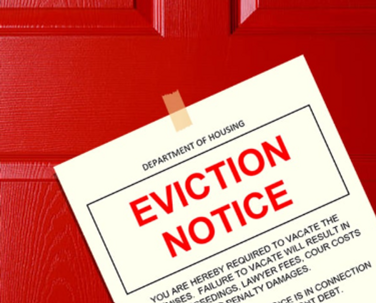There are two (2) types of eviction proceedings you will see in NY: (i) a Nonpayment proceeding and (ii) a Holdover proceeding.
In this article, we are discussing a Nonpayment eviction.
Nonpayment is exactly as it sounds and is brought when a tenant stops or fails to pay the rent as required under the lease or tenancy.
IMPORTANT: when there is a valid lease, generally, the landlord is only able to bring a Nonpayment action (versus a Holdover) to recover possession.
New York has some of the most intricate and complicated L&T laws in the country so it is important you work with an experienced L&T attorney.
For starters, there are going to be "predicate notices" required before a nonpayment action can be filed in Court.
First, the landlord will file a "5-Day Rent Demand." This notice is generally filed by certified mail and puts the tenant on notice that the rent has not been received.
Second, the landlord will file a "14-Day Rent Demand" if the tenant fails to pay following the 5-day notice. The 14-Day "Notice to Quit" informs the tenant they have 14 days to make payment or they must move out or face eviction proceedings.
IMPORTANT: Today, NY also requires the Landlord to file a "Good Cause Eviction Notice" in addition to the 5-day and 14-day.
If the Tenant fails to pay following the 14-Day Notice to Quit, the landlord will then file and serve on the tenant the "Petition" and "Notice of Petition" in housing court. In NYC, this is within the civil court of each borough and generally filed through NYSCEF whereas in Nassau and Suffolk County, the housing part is located within District Court and is not e-filed.
The process to evict a tenant can take time depending on several factors and whether or not the tenant is represented by opposing counsel.
There will be hearings, settlement conferences and potentially trials (depending on the facts) within each case. Sometimes, if a tenant fails to respond or appear in the action, the landlord can seek a "default judgment" with the Court asking for a judgment to be issued and a warrant of eviction to be executed.
Reach out to SNIDER LAW PLLC for your next eviction.

